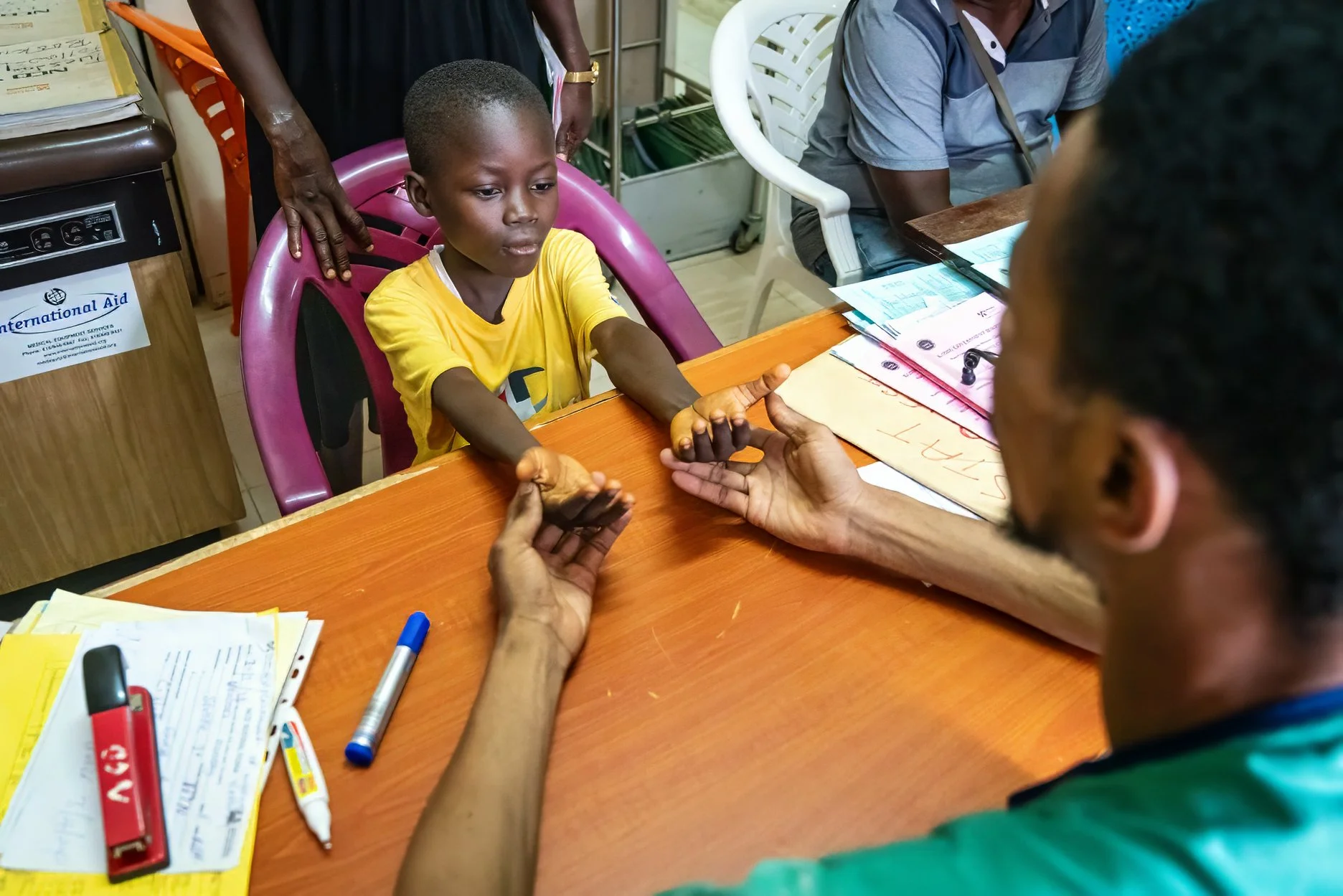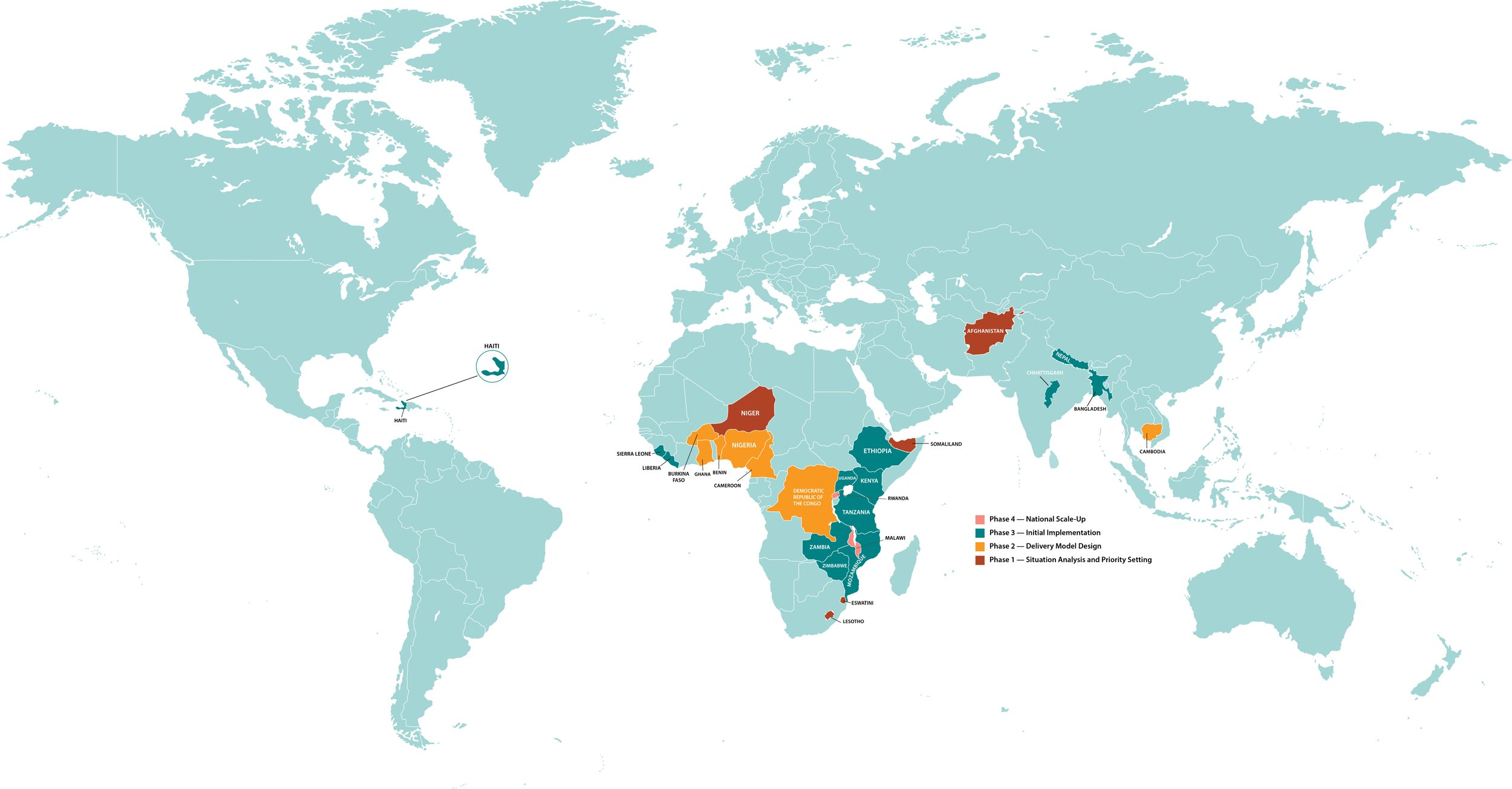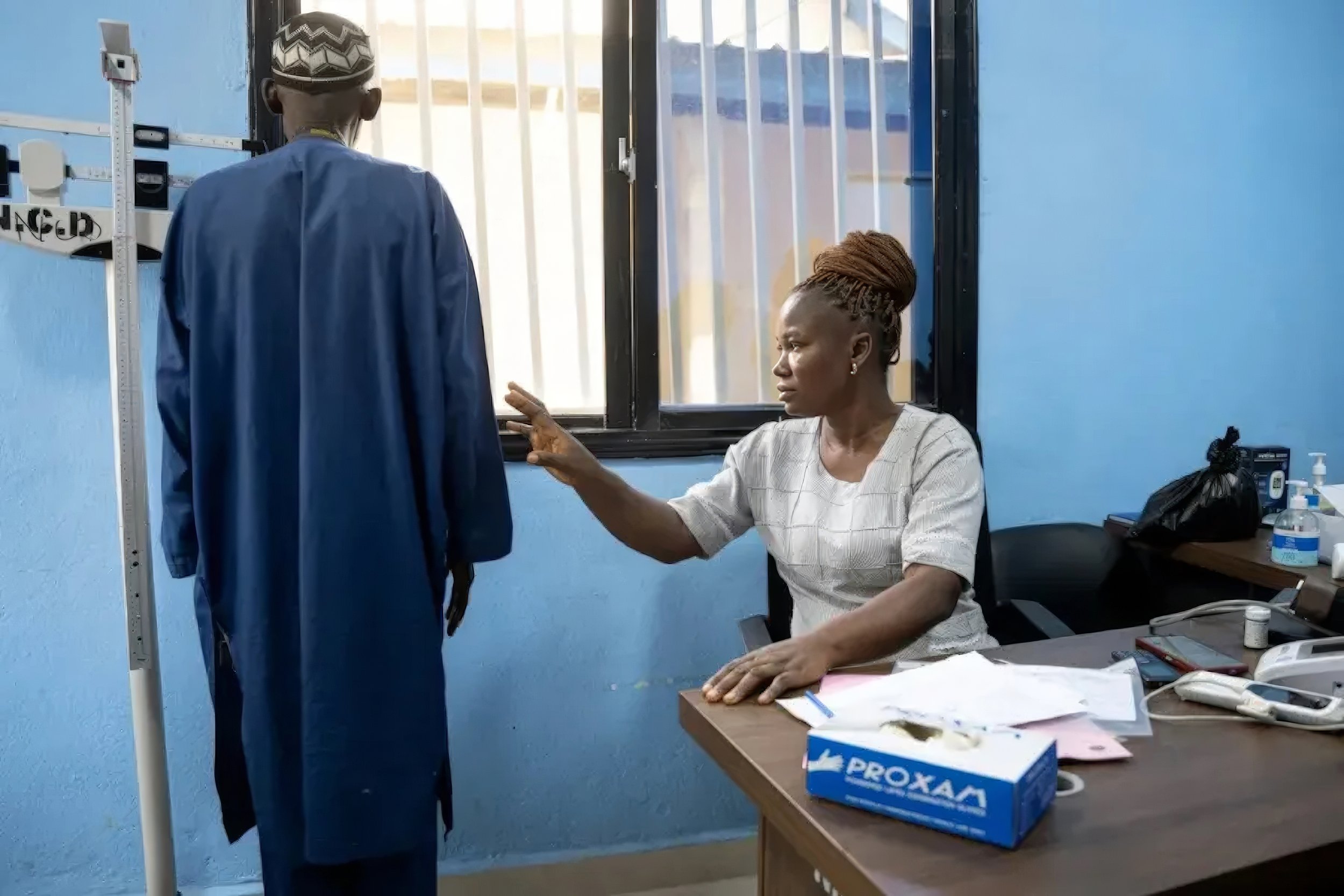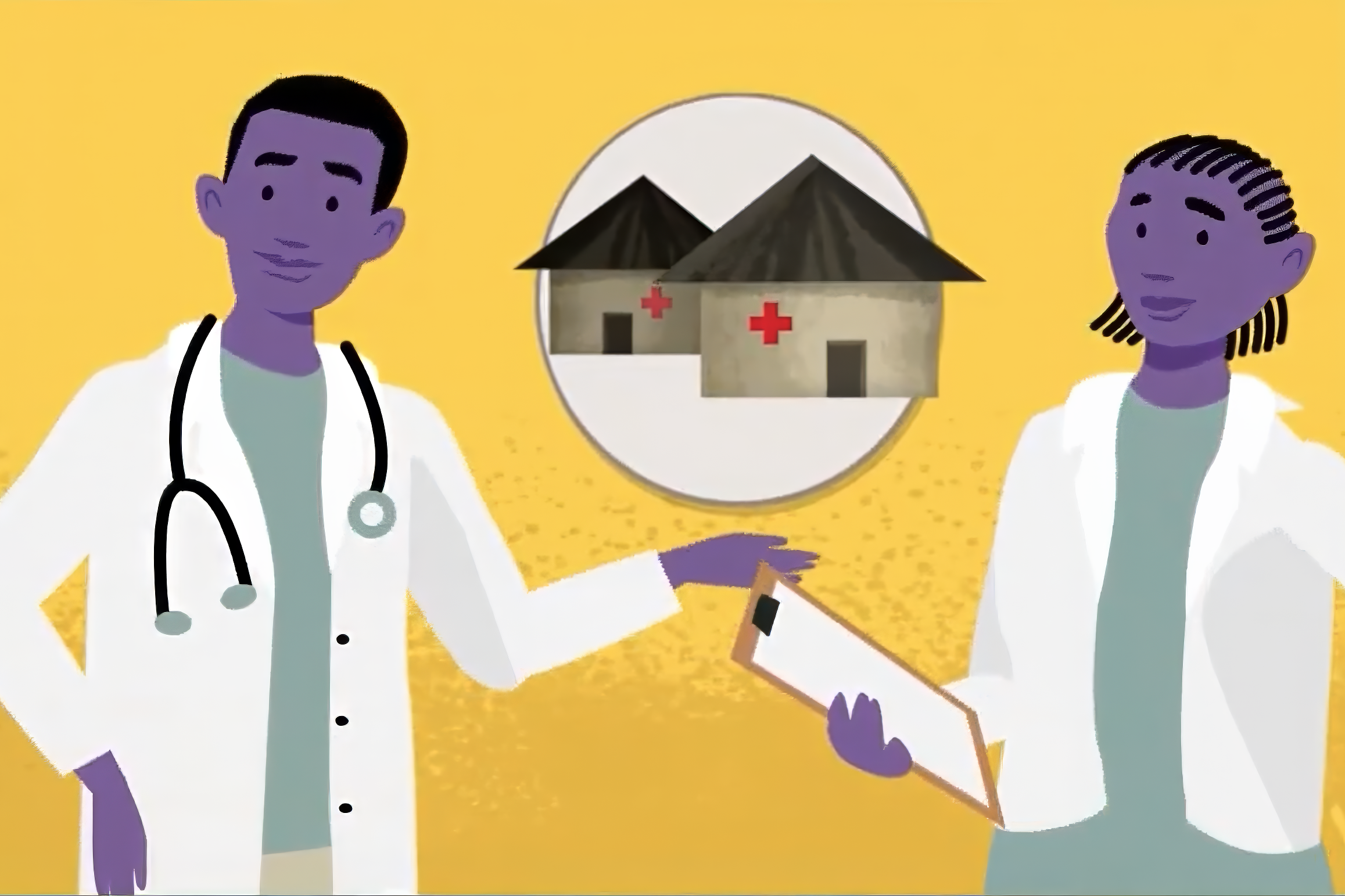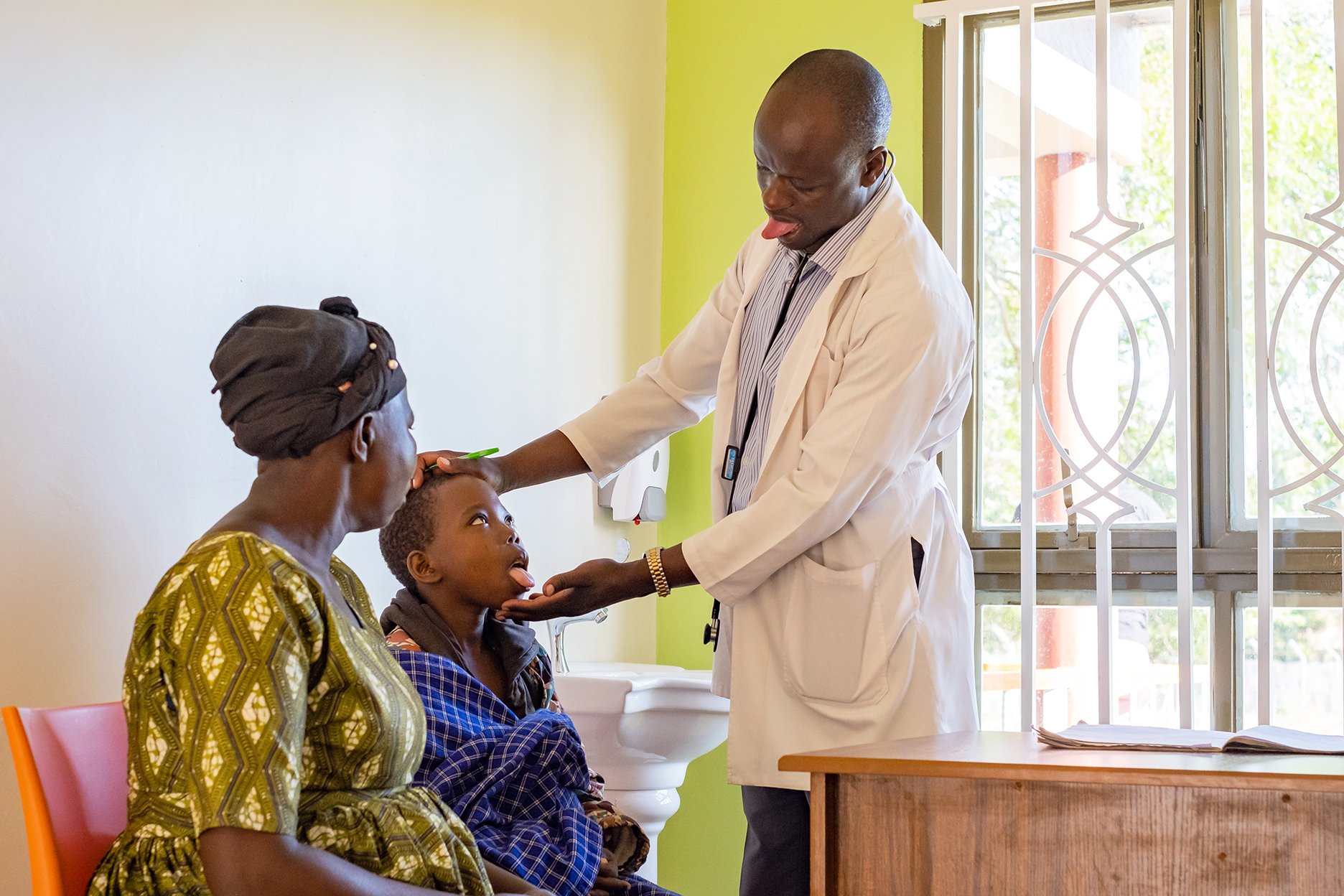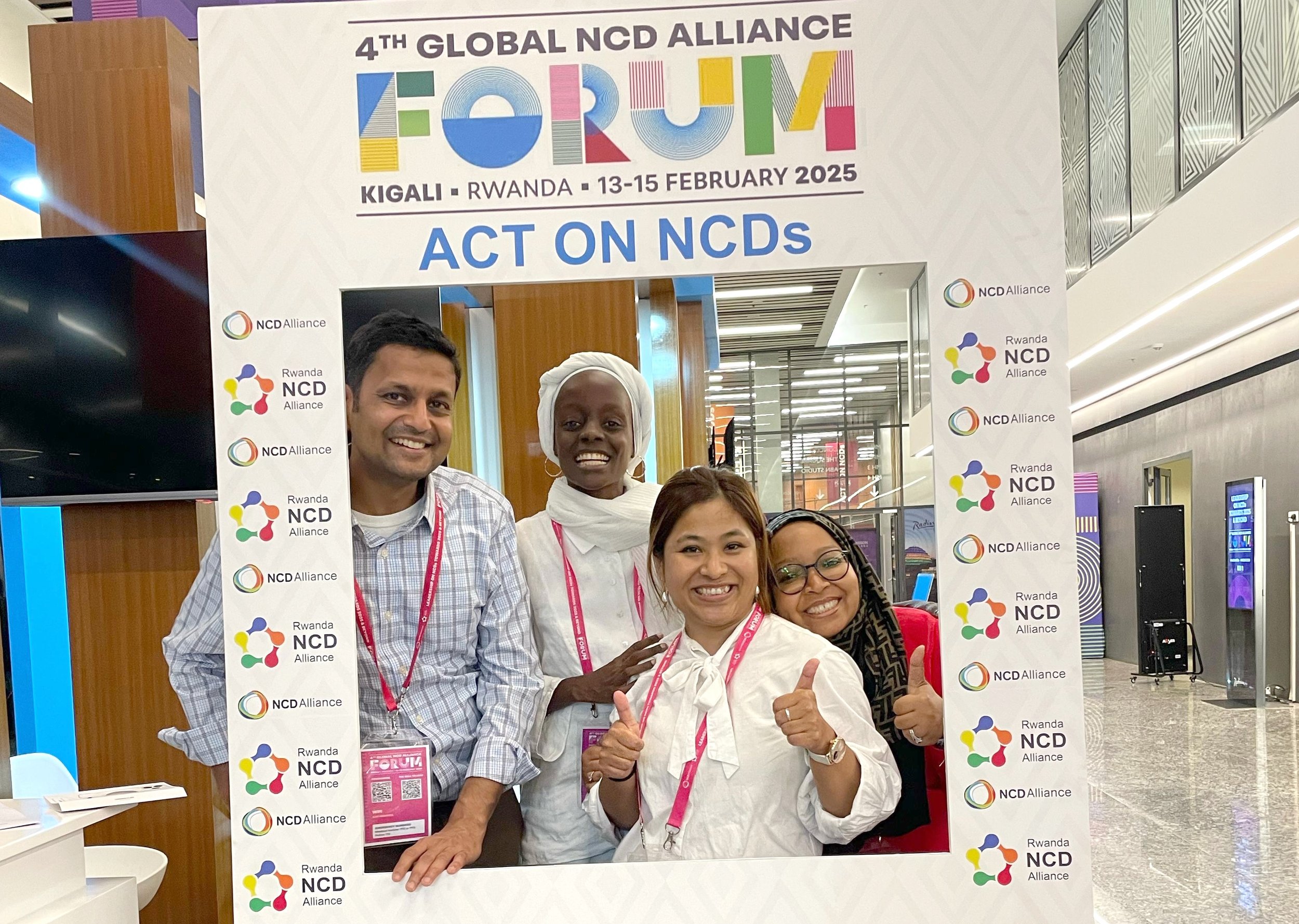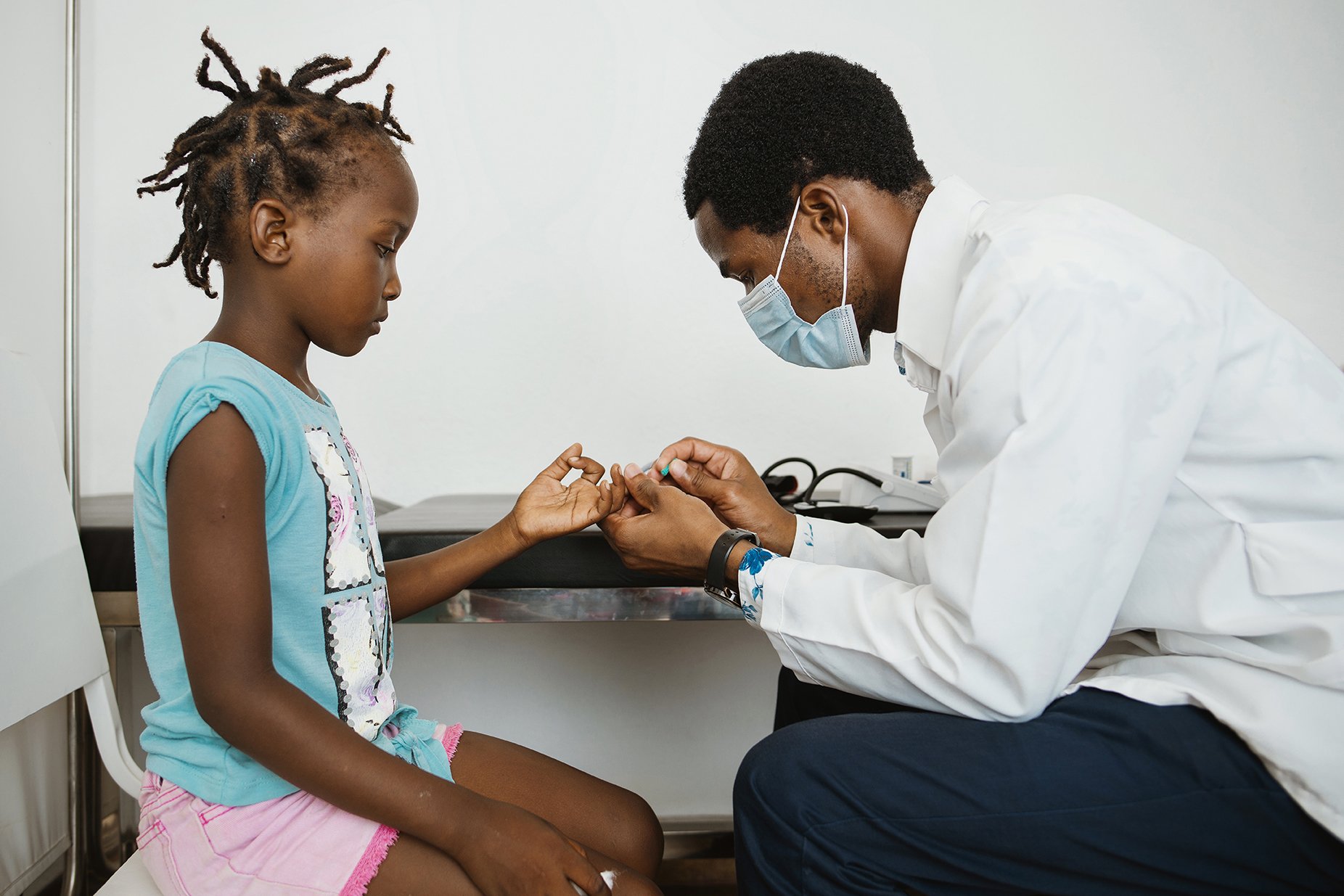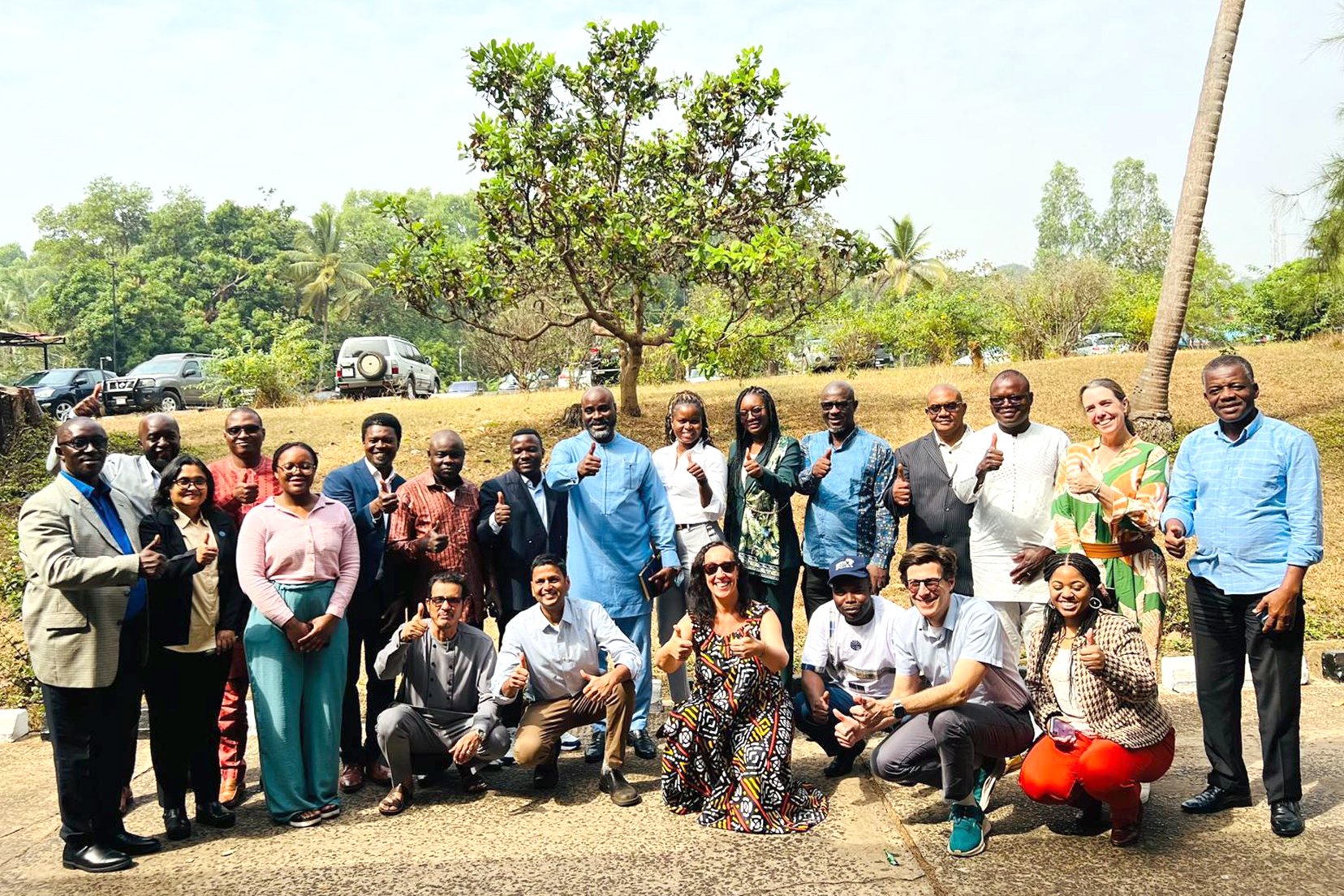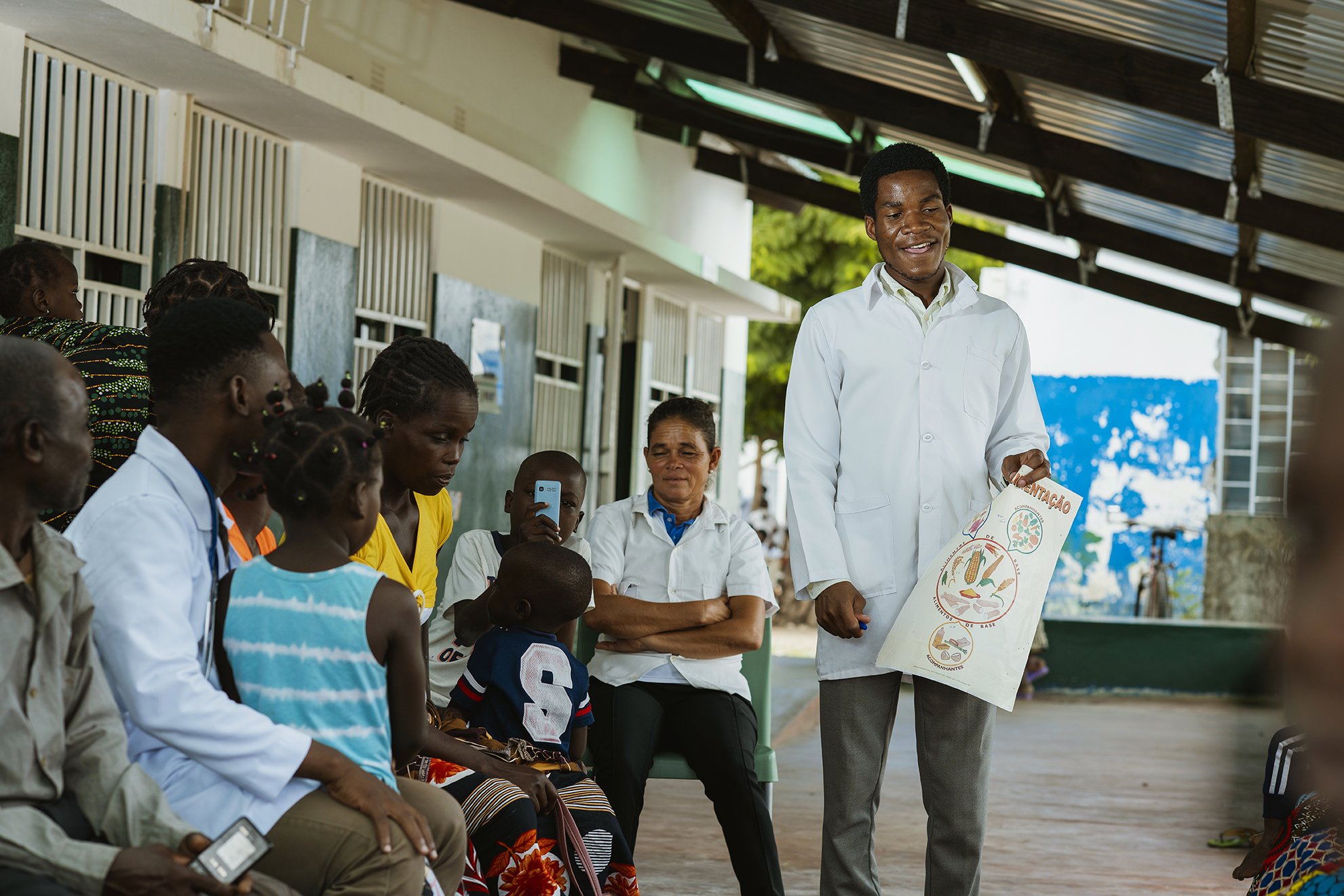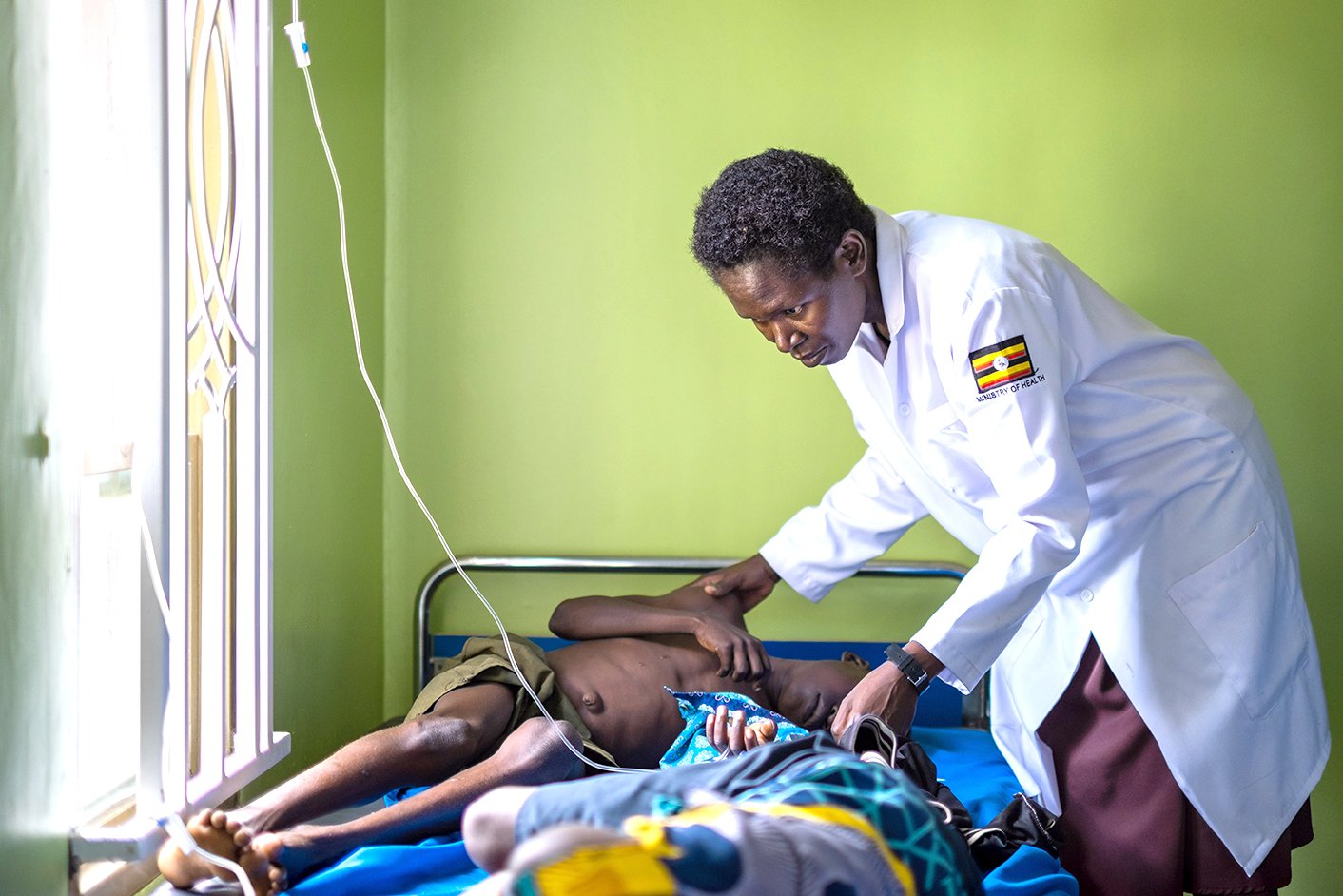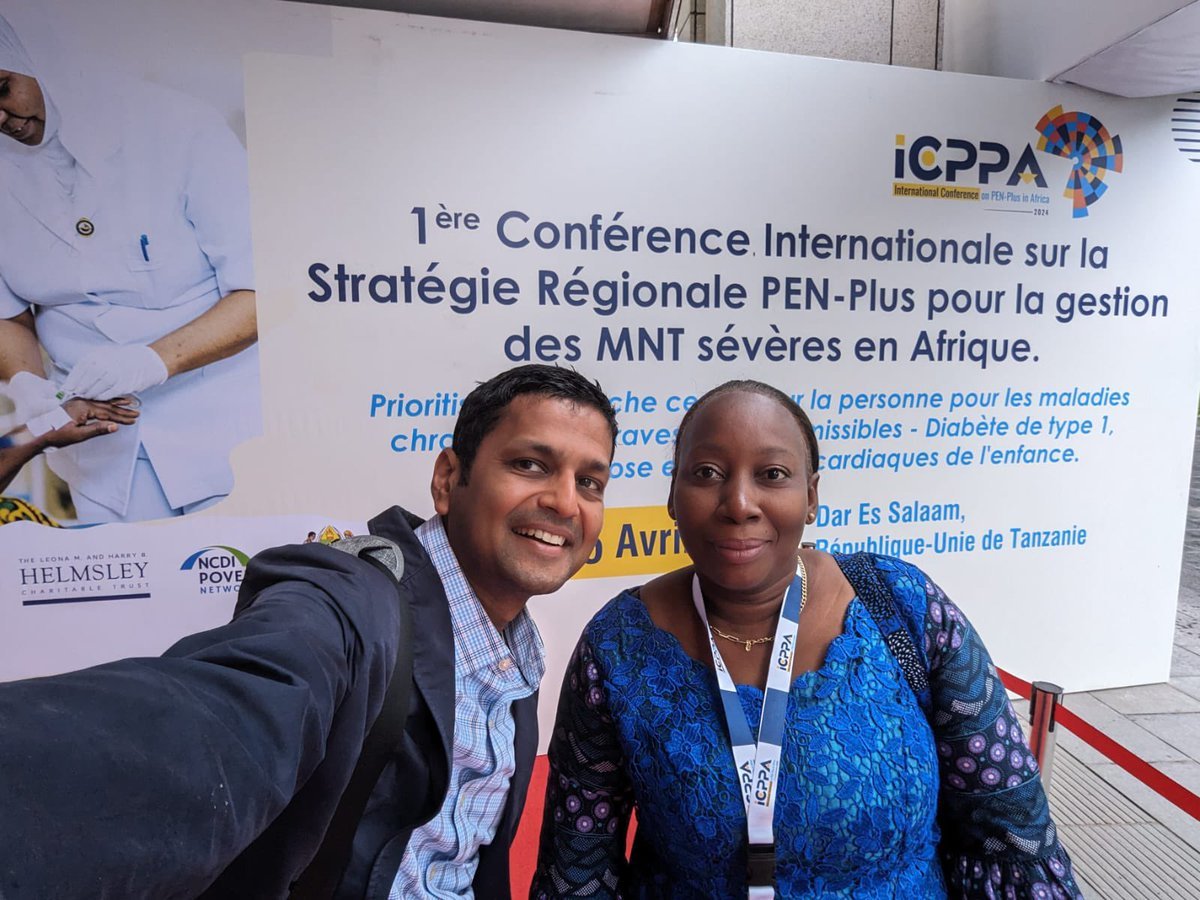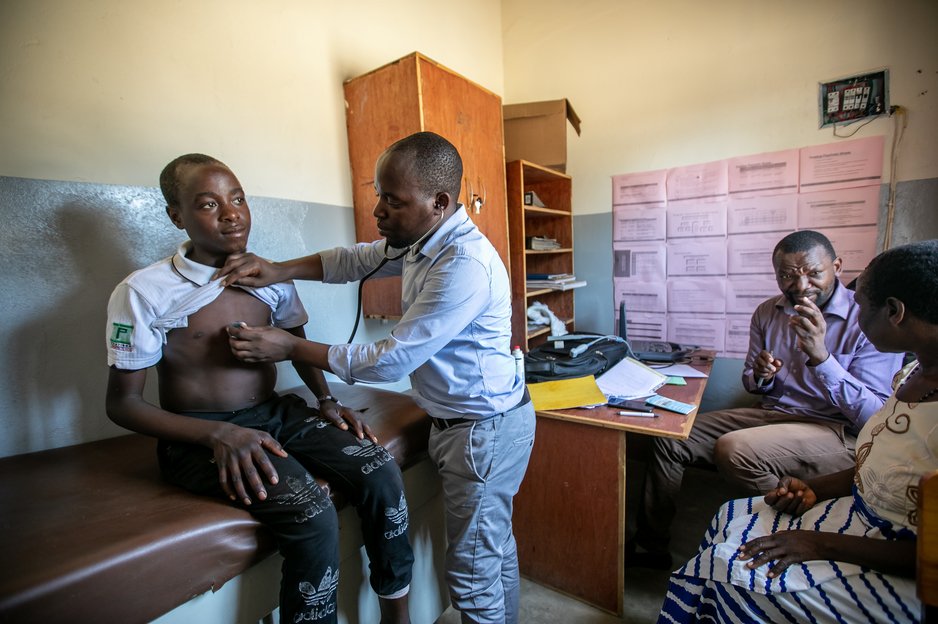
Implementation
Technical Support for PEN-Plus Implementation
The NCDI Poverty Network assists partners with low- and lower-middle-income countries to develop the plans, budgets, facilities, training and mentorship programs, procurement systems, supply chain management, and monitoring and evaluation needed to decentralize and integrate the delivery of care for severe conditions that cause avoidable death and suffering among the world’s poorest children and young adults through PEN-Plus.
PEN-Plus implementation takes place during Phases 3 and 4 of the Network’s four-phase theory of change. During Phase 3, countries train providers to deliver groups of prioritized services through integrated delivery models, offer these services to groups of patients at facilities in multiple regions of the country, prepare these facilities to serve as training sites for other providers, and develop the policies and plans needed to scale these delivery models nationally.
During Phase 4, countries and partner organizations in the NCDI Poverty Network work together to build the financial and technical partnerships they need to support a national scale-up of PEN-Plus.
The Role of the Programs Team
The Network’s Programs Team leads support for ministries of health and implementing partners in countries initiating PEN-Plus programs and coordinates support from the Training Team for curriculum and training material development, the Research and Monitoring and Evaluation Team for evaluation and impact assessment, and the Administrative Team for program management, budgeting, and procurement.
The Programs Team works directly with ministries of health and implementing partners in 11 NCDI Poverty Network countries that initiated PEN-Plus programs in 2022 and 2023. In addition, the team provides ongoing technical support to Ministries of Health for national scale-up of PEN-Plus in four countries that successfully initiated the model between 2012 and 2018.
The Programs Team’s support for the 11 countries that initiated PEN-Plus in 2022 and 2023 includes:
Supporting program planning and management within and across the 11 countries
The Programs Team supports implementing partners and Ministries of Health with developing and monitoring their program plans and budgets, tracking program milestones, and facilitating meetings and tracking documents to monitor implementation. In addition, to inform adjustments and adaptations in programming going forward, the team collates implementation and programmatic details across sites, including similarities and differences in which conditions are included, which providers are delivering services, and what strategies are being employed for training, procurement, and monitoring and evaluation.
Providing technical support to maximize program learning and successful implementation across sites
Drawing on Network resources, lessons from existing PEN-Plus sites, and subject-matter experts engaged through the PEN-Plus Partnership, the Programs Team shares knowledge, experience, and resources for PEN-Plus initiation through regular site visits and country-specific technical calls, a series of cross-site learning forums, technical materials development, and the coordination of learning visits between sites and connections to clinical and other experts.
Developing and sharing technical materials and other documentation
To ensure that the PEN-Plus intervention is packaged in a collaborative, informed, and detailed way to support initiation and scale-up at the country level and to inform the broader policy and advocacy agenda with WHO AFRO, UNICEF, and other key partners, the Programs Teams has developed and shared documentation covering all aspects of program implementation. Topics covered include Staffing; Training; Medications, Labs, and Equipment; Care Pathways; Infrastructure; Data Systems; Evaluation; Reporting; National Operational Planning; Integration Science; and Essential Programmatic Standards.
The Programs Team also provides and coordinates technical support to the four countries that were the first to implement PEN-Plus services: Rwanda, Malawi, Liberia, and Haiti.
PEN-Plus Clinical Tools and Programmatic Standards
The NCDI Poverty Network’s Programs Team developed and now maintains English, French, and Portuguese editions of PEN-Plus Clinical Tools and Programmatic Standards, a document aimed at informing clinic and program planning, budgeting, and operations by closely detailing PEN-Plus clinical care, including the diagnostic, treatment, and patient support services available. With clarity around these services, clinics can extrapolate additional parts of the program, such as lists of essential medications and equipment, training needs, and healthcare-provider competencies.
PEN-Plus Clinical Tools and Programmatic Standards, Outils Cliniques et Standards du Programme PEN-Plus, and Ferramentas Clínicas e Normas Programáticas do PEN-Plus can be used as references both for planning PEN-Plus programs and for assessing and refining existing PEN-Plus clinics. These living documents will change and adapt as PEN-Plus systems strengthen and higher levels of care and standards are achieved.
English Edition
French Edition
Portuguese Edition
The Programs Team
-

Dr. Emily Wroe
SENIOR DIRECTOR OF PROGRAMS
-

Dr. Marta Patiño Rodriguez
ASSOCIATE DIRECTOR OF EDUCATION AND TRAINING
-

Dr. Colin Pfaff
ASSOCIATE DIRECTOR OF PROGRAMS
-

Collin Whelley
ASSOCIATE DIRECTOR OF DATA SYSTEMS AND MONITORING & EVALUATION
-

Dr. Natnael A. Abebe
REGIONAL ADVISOR FOR EAST AFRICA
-

Dr. Maureen Achebe
ASSISTANT DIRECTOR FOR HEMATOLOGY INTEGRATION
-

Dr. Remy Nkwiro Bitwayiki
REGIONAL ADVISOR FOR WEST AFRICA
-

Katia Domingues
PEN-PLUS PROGRAM MANAGER
-

Gina Ferrari
TYPE 1 DIABETES AND GLOBAL HEALTH EQUITY RESEARCH FELLOW
-

Dr. Sheila Klassen
ASSISTANT DIRECTOR FOR CARDIAC INTEGRATION
-

Dr. Gene Kwan
CARDIOLOGIST
-

Daphne Nakawesi
PEN-PLUS COORDINATOR
-

Gedeon Ngoga
CLINICAL ADVISOR
-

Ramon Ruiz
INSTRUCTIONAL DESIGNER
-

Devashri Salvi
MONITORING AND EVALUATION LEAD
-

Dr. Shela Sridhar
REGIONAL ADVISOR FOR SOUTH ASIA










